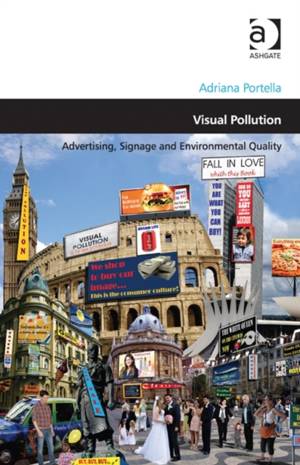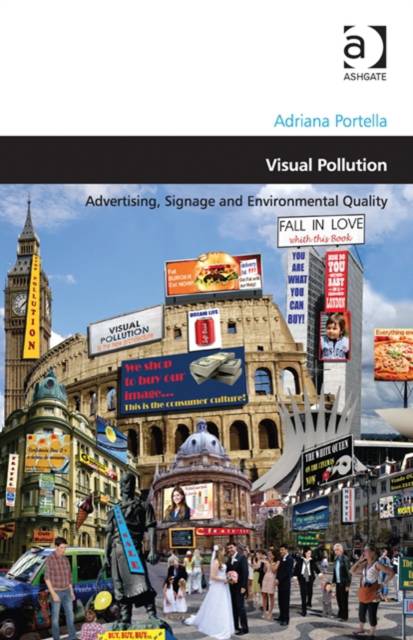
- Afhalen na 1 uur in een winkel met voorraad
- Gratis thuislevering in België vanaf € 30
- Ruim aanbod met 7 miljoen producten
- Afhalen na 1 uur in een winkel met voorraad
- Gratis thuislevering in België vanaf € 30
- Ruim aanbod met 7 miljoen producten
Zoeken
€ 216,45
+ 432 punten
Uitvoering
Omschrijving
In recent years, there has been considerable interest in the problems that public spaces face because of the design of commercial signs. The negative consequences that commercial signs can have on the visual quality of urban areas and further more, on people's quality of life, has been studied from both architectural, planning and psychological perspectives. While the issue of visual pollution, as this phenomenon is commonly described, has been widely debated, there is as yet no clear conclusion as to how best to control commercial signage and whether different urban contexts and people from different backgrounds and cultures have universal or distinct preferences. Several different commenrcial signage approaches are currently applied to different historic cities, but these initiatives are not based on principles derived from the perception and evaluation of users. Drawing on a range of comparative and contrasting empirical studies of historic city centres in the UK and Brazil, this book examines questions of commercial signage control management, the preservation of historic heritage and user preference and satisfaction. The author takes an environment behaviour approach to this research, involving theories, concepts and methodologies related to environmental psychology, architecture, planning and urban design. In doing so, it argues that there are in fact visual preferences common to the majority of people, independent of their urban context and that these common views can be useful to the development of a general theory of how to control commercial signage. In conclusion, the book suggests that the best way of controlling signage is not only to recommend general guidelines related to the operation of commercial signage, but also to recommend design principles that can create commercial streetscapes evaluated positively by different users.
Specificaties
Betrokkenen
- Auteur(s):
- Uitgeverij:
Inhoud
- Aantal bladzijden:
- 346
- Taal:
- Engels
- Reeks:
Eigenschappen
- Productcode (EAN):
- 9780754675341
- Verschijningsdatum:
- 21/04/2014
- Uitvoering:
- Hardcover
- Formaat:
- Genaaid
- Afmetingen:
- 156 mm x 233 mm
- Gewicht:
- 770 g

Alleen bij Standaard Boekhandel
+ 432 punten op je klantenkaart van Standaard Boekhandel
Beoordelingen
We publiceren alleen reviews die voldoen aan de voorwaarden voor reviews. Bekijk onze voorwaarden voor reviews.












